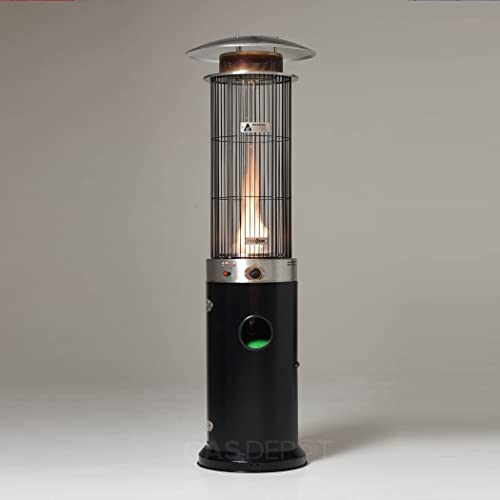10 Gas Heaters Tricks All Experts Recommend
Understanding Gas Heaters: A Comprehensive Guide
Gas heaters are a necessary part of many families, offering warmth and comfort during the cooler months. With hop over to here of gas heaters readily available, comprehending their functioning, advantages, and security steps is important for users. This post offers a useful introduction of gas heaters, how they work, and addresses often asked questions on the topic.
Understanding Gas Heaters
Gas heaters run by burning gas or propane to produce heat. They are used to warm indoor areas and are typically thought about more efficient than electrical heaters. The main kinds of gas heaters consist of:
Types of Gas Heaters
Type
Description
Gas
Connected to a gas line and supplies constant heat supply.
Propane
Uses propane tanks, making it appropriate for areas without gas lines.
Unvented
Burns gas without a vent system, suitable for well-ventilated spaces.
Vented
Expels combustion gases outside, ideal for maintaining indoor air quality.
Each type has its special advantages and applications, making them suitable for various environments and preferences.
How Gas Heaters Work
Gas heaters typically make use of a mix of burners, heat exchangers, and blowers to disperse heat successfully. The process generally involves:
- Ignition: Natural gas or propane is ignited either via a pilot light or an electronic ignition system.
- Combustion: The gas burns, producing heat which is then moved to a heat exchanger.
- Heat Distribution: A blower or fan disperses the heated air throughout the space, producing a comfy environment.
- Exhaust: In vented systems, exhaust gases are expelled outside, maintaining security and preventing toxic buildup inside.
Advantages of Gas Heaters
Gas heaters offer different benefits that make them a popular option for heating areas. Some of the key benefits include:
- Energy Efficiency: Gas heaters generally supply more heat per unit of fuel compared to electrical heaters, making them a cost-efficient heating alternative.
- Rapid Heating: They warm up spaces rapidly, offering instant heat when turned on.
- Eco-friendly: Natural gas is cleaner than coal and is thought about a more eco-friendly alternative than electric heating in numerous regions.
- Dependability: Gas heaters can continue to operate throughout power outages, guaranteeing continued convenience during severe weather.
Drawbacks of Gas Heaters
While gas heaters have lots of benefits, there are likewise some downsides to think about:
- Installation Cost: The preliminary setup cost for gas lines or propane tanks can be high.
- Safety Risks: There are fundamental risks related to gas leaks and carbon monoxide gas poisoning, necessitating careful installation and maintenance.
- Space Requirements: Some types of gas heaters (particularly vented ones) require significant space for installation and exhaust systems.
Maintenance Tips for Gas Heaters
Correct upkeep is essential for guaranteeing the safety and performance of gas heaters. The following tips can assist keep optimal efficiency:
- Annual Inspections: Have a certified service technician inspect the gas heater every year to inspect for leakages and guarantee correct functionality.
- Clean the Heater: Regularly clean the heater and surrounding area to avoid dust build-up, which can impact performance.
- Check Vents: Ensure that all vents are unblocked and operating correctly to prevent accumulation of damaging gases.
- Display for Smells: Any uncommon smell, particularly gas, need to be attended to right away by calling a professional.
Frequently Asked Questions about Gas Heaters
Q1: Are gas heaters safe to utilize inside?
Yes, gas heaters can be safe for indoor usage as long as they are correctly installed and maintained. Vented gas heaters are especially safe since they expel combustion gases outside, lowering the risk of carbon monoxide gas poisoning.
Q2: How can I inform if my gas heater has a gas leakage?
Indications of a gas leak consist of a nasty odor resembling rotten eggs, hissing noises, and dead greenery around the area. If you think a gas leak, it is crucial to leave the premises immediately and call your gas service provider.
Q3: Do gas heaters require a power source?
A lot of gas heaters do not need electrical power to operate, particularly those that count on gas. However, models with fans or electronic ignition systems will need a power supply.
Q4: What should I do if I smell gas near my heater?
If you smell gas, you ought to immediately leave the location, avoid utilizing any electrical gadgets, and call your gas company or emergency situation services from a safe distance.
Q5: What is the lifespan of a gas heater?
Generally, gas heaters have a lifespan of 10 to 15 years with proper upkeep. Routine examinations can help extend their operational life.
Gas heaters can be an efficient and reputable way to keep homes warm and comfy throughout winter months. Their various styles and advantages accommodate various needs and preferences. Nevertheless, understanding their performance, prospective safety problems, and upkeep requirements is important for any homeowner considering or currently utilizing gas heating. By following best practices and staying notified, users can delight in the heat and efficiency of gas heaters for many years to come.
